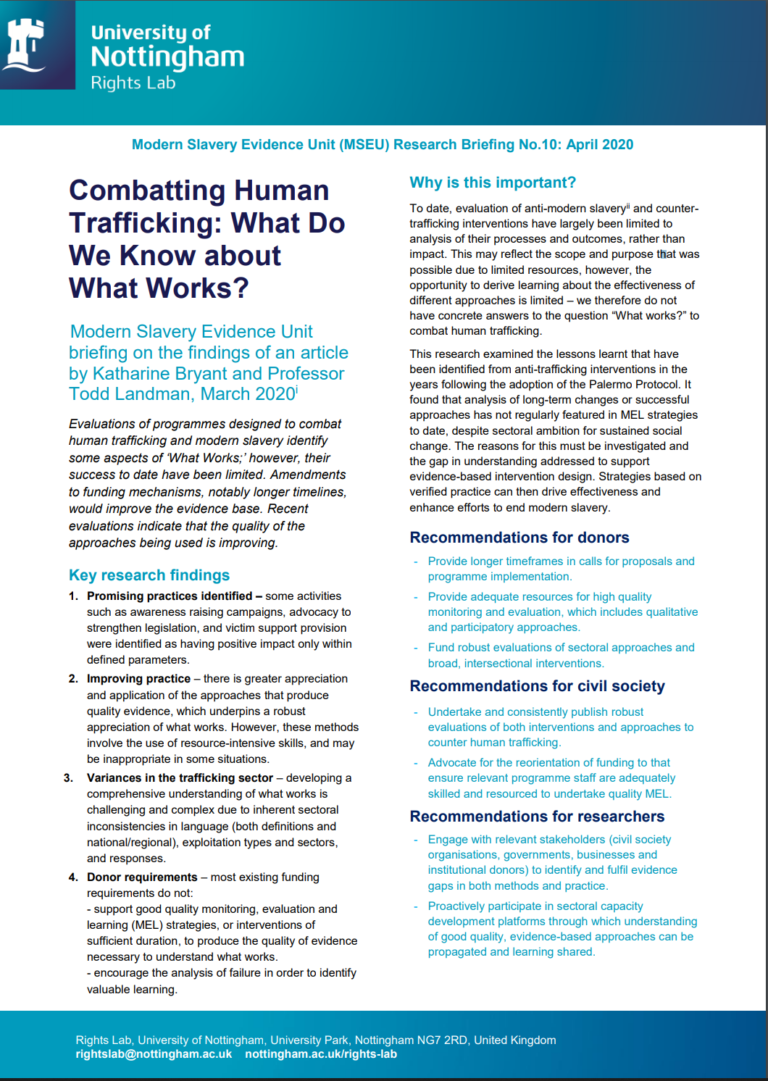Evaluations of programmes designed to combat human trafficking and modern slavery identify some aspects of ‘What Works’ however, their success to date have been limited. Amendments to funding mechanisms, notably longer timelines, would improve the evidence base. Recent evaluations indicate that the quality of the approaches being used is improving.
This study analyses the evaluations of counter-trafficking interventions that are included in Walk Free’s Promising Practices database. The research seeks to identify what can be learned about effective strategies to combat human trafficking from the evaluations published in the 20 years following the adoption of the 2000 UN Trafficking Protocol.

